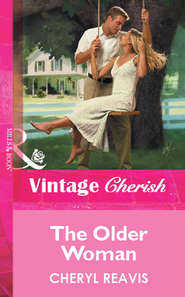По всем вопросам обращайтесь на: info@litportal.ru
(©) 2003-2024.
✖
An Unexpected Wife
Настройки чтения
Размер шрифта
Высота строк
Поля
“Yes,” she said—which wasn’t quite the truth. She understood that he made certain that her brother’s life ran as smoothly as possible and that he wanted her to know something about that duty, which he felt was important. She just didn’t know what that “something” was.
She had to turn away from the strong gust of wind that filled the hallway when he finally left by the front door. The man lying at her feet didn’t react at all. She gave him a backward glance, then hurried upstairs to pull two of the quilts off her own bed because she didn’t want to take the time to look through cedar chests for extra ones. He didn’t seem to have stirred when she returned. She folded the quilts double, then knelt down to cover him, hesitating long enough to look at his face again before she went to light more lamps in the downstairs. One of his hands was outstretched, and she carefully lifted it. She could see the scarred knuckles, feel the calluses on his palm as she placed it under the quilt.
It was so cold on the floor. She couldn’t keep from shivering, and she had to bite down on her lip to keep her teeth from chattering. For a brief moment she thought she saw a slight movement from him as well.
No, she decided. He wasn’t waking. He was just cold. He had to be as cold as she was.
“I must learn how to build a fire. In a fireplace and in a cookstove,” she said out loud as she got to her feet. “And that’s all there is to it.”
She went around lighting as many lamps as she could find—she did know how to do that, at least. She had no expectation that Perkins would return quickly, and after what already seemed a long time, she began to pace up and down the hallway in an effort to keep warm. She didn’t know what time it was—only that it was nearly dark outside. She thought there had once been an heirloom grandfather clock in the foyer, but it, like the rest of the hall furniture, had become a casualty of the war, and Maria hadn’t wanted another one. In this one instance, Kate thought she understood her sister-in-law’s behavior. Some things were far too dear to be replaced, especially if all the replacement could ever be was a reminder of what had been lost.
Kate kept her eyes on the man as she walked the hallway, but she let her mind consider what she was going to tell Max about her being here instead of Philadelphia. After a time she decided that she wouldn’t tell him anything. She would say the same thing to him she’d said to Perkins. She hadn’t missed her train; she just didn’t get on—and that was all these two representatives of the military occupation needed to know.
She suddenly stopped pacing. This time she had no doubt that the man had moved. She took a few steps closer because she couldn’t tell for certain whether or not he was beginning to wake. If he tried to get up, if he seemed threatening in any way, she would do what Perkins said. She would run to her room and lock herself in.
She could tell that his eyes were still closed, and she took some comfort from that, but after a long, tense moment, he began stirring again. He gave a soft moan and turned his head in her direction.
“Eleanor,” he said.
* * *
Am I wounded?
He tried to open his eyes and couldn’t. He needed to get up, but he couldn’t do that, either. He could hear the voices swirling around him. Women’s voices.
“Move aside!” he heard one of them say. She must have been some distance away. There were sharp-sounding footsteps coming in his direction.
“You!” she suddenly barked. “Get the parlor and the kitchen fires lit! This house is freezing!”
“Yes, ma’am,” a young-sounding male voice said.
“The kitchen first!” she said, still yelling. “We need hot water and heated blankets! Now!”
He could hear the scurrying of a heavier set of footsteps, and then a different woman’s voice.
“That way,” she said kindly, and the scurrying continued past him down the hall.
“Have you made no preparations whatsoever?” the first woman demanded.
“No, Mrs. Kinnard, I have not. I don’t expect he’ll be staying.”
He struggled to make sense of what he was hearing.
Mrs. Kinnard? Acacia Kinnard?
It couldn’t be her. Acacia Kinnard was...was...
He couldn’t complete the thought.
“Indeed, he will be staying,” this Mrs. Kinnard said. “You cannot put Maria’s brother out for all your thinking you’ve won the War. Shame on you, Robert Markham!” she suddenly barked. “Shame!”
“I don’t think he can hear you,” the younger woman ventured.
“Of course he can hear me! Robert Brian Markham! Where have you been!” Mrs. Kinnard demanded. “What would your dear sweet mother say! And poor Maria—if you’d bothered to come home, she might not be—”
Her voice suddenly drifted away, lost in the blackness that swept over him.
Chapter Two
Married to a Yankee, Kate thought. If Robert Markham had come home, as was his duty, then his sister might not have married a Yankee colonel. She was surprised that Mrs. Kinnard had stopped short of actually saying it.
Sergeant Major Perkins’s plan to “take care of all this” left a great deal to be desired, in Kate’s opinion. Her opportunity for solitude had completely disappeared when he’d returned with a number of soldiers, two hospital orderlies and Mrs. Kinnard, the indisputable Queen Bee of Salisbury Society. Mrs. Kinnard had an impeccable Southern pedigree, and she had used it to all but appoint herself head of just about everything, including the Confederate military wayside hospital down near the railroad tracks during the war. Mrs. Kinnard’s word was still law in all matters not under the direct supervision of the United States Army, and, Kate suspected, in some of those, as well.
“Excuse me, Miss Kate,” one of the hospital orderlies said.
She—and ultimately Mrs. Kinnard—moved out of the way so he could kneel down and assess the man’s condition. It occurred to her that Robert Markham was going to have every bit as much trouble pacifying Mrs. Kinnard as her brother did.
“Is the doctor coming?” Kate asked the orderly.
“Just as soon as we can find him, Miss Kate,” he said.
Kate stood watching as he uncovered the man and began to examine him, looking for a reason why he had fallen to the floor, she supposed.
“Well, can you do anything helpful?” Mrs. Kinnard said suddenly, and Kate realized she was once again in her sights.
“I...”
“Exactly as I thought. You do know where there is pen and paper, I hope.”
Kate took a quiet breath before she answered. “Yes. I’ll be happy to get it.”
Kate escaped to Maria’s writing desk in the parlor and returned with a sheet of paper and a short pencil. Mrs. Kinnard eyed the pencil, and Kate thought she was going to refuse to take it.
“The ink is frozen. I’m sorry,” Kate added, because in a roundabout way, that could be considered her fault. “I assumed you were in a hurry,” she said, still holding out the pencil.
Mrs. Kinnard gave an impatient sigh, then removed her gloves and bonnet and handed them to Kate in exchange for the pencil and paper. Kate had no idea what to do with them, given the dearth of furnishings in the hall. She held on to them in lieu of throwing them down on the parquet floor, then she opened the dining room door and went inside, ultimately placing the bonnet and gloves carefully on a chair next to the sideboard and nearly colliding with Mrs. Kinnard when she turned around to leave.
“They should be safe here,” Kate said, because she hadn’t realized the woman had followed her and concern for her finery was the only conclusion Kate could come to as to why she did. She could hear the front door opening and a number of footsteps in the hall. Several more soldiers passed by the dining room door, two of them carrying a stretcher.
Mrs. Kinnard sat down at the dining table near the oil lamp Kate had lit earlier and began to write—a list, from the looks of it.
“Mr. Perkins!” she cried when she’d finished, clearly eschewing Perkins’s military title, probably because he belonged to an army she considered of no consequence.
“Yes, ma’am, Mrs. Kinnard!” he called from somewhere at the back of the house.
“Take this,” she said, when he finally appeared in the doorway. “I want this list filled as soon as possible.”
He looked at the sheet of paper, then back at her. “Mrs. Russell isn’t going to welcome a knock on the door this time of night from the likes of me, ma’am.”











